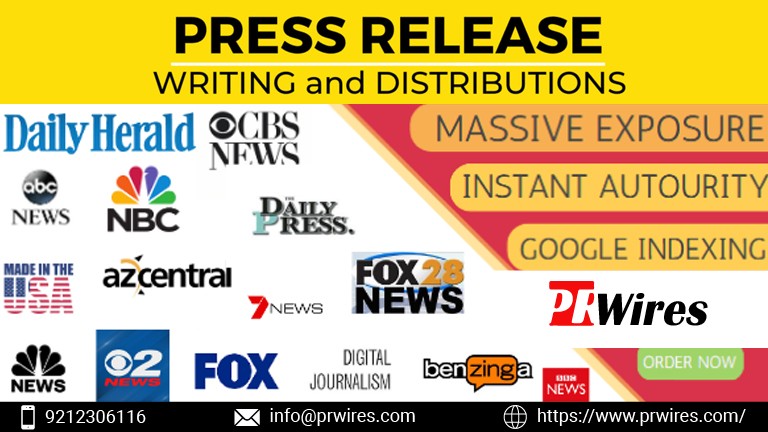Unveiling Political Rhetoric: Media's Role
In the contemporary political landscape, the role of media has become increasingly prominent and influential. The media acts as a powerful catalyst, shaping public opinion, and impacting the political discourse. This article aims to delve into the intricate relationship between politics and the media, shedding light on how political rhetoric is constructed, disseminated, and perceived by the masses.
The Power of Political Rhetoric
Political rhetoric encompasses the strategic use of language and communication techniques by politicians and public figures to shape public opinion. It plays a crucial role in influencing voters, mobilizing support, and advancing policy agendas. By employing persuasive techniques such as emotional appeals, vivid imagery, and logical reasoning, political rhetoric aims to sway the masses and solidify a particular viewpoint.
The Media's Influence on Political Discourse
Framing the Narrative
One of the media's key roles in political rhetoric is framing the narrative. Media outlets selectively choose which aspects of a story to highlight, the language used, and the overall tone. These framing techniques influence how the audience perceives and interprets political events, shaping their opinions and attitudes.
Agenda Setting
The media also possesses the power of agenda setting. By prioritizing certain topics or issues over others, the media influences public attention and perception. Through repetitive exposure, specific political narratives can gain prominence, while others may be marginalized or ignored, leading to an unequal representation of viewpoints.
Sensationalism and Bias
Sensationalism and bias within the media can significantly impact political discourse. Sensationalized reporting, driven by the pursuit of higher ratings or increased readership, tends to prioritize drama and conflict over substantive analysis. Additionally, inherent biases within media organizations or individual journalists can sway the information presented, potentially distorting the public's understanding of political events.
The Impact of Political Rhetoric on Public Perception
Creating Emotional Appeals
Political rhetoric often employs emotional appeals to resonate with the audience on a personal level. By using language that evokes fear, hope, or empathy, politicians and media outlets can influence public sentiment and garner support for their positions. Emotional appeals can be powerful tools for mobilizing the masses and shaping public opinion.
Shaping Political Identity
Political rhetoric also plays a vital role in shaping individuals' political identities. By aligning themselves with specific political ideologies or parties, individuals adopt the associated rhetoric, creating a sense of belonging and shared values. Media plays a significant role in reinforcing and amplifying these political identities through its coverage and commentary.
Reinforcing Stereotypes
Certain forms of political rhetoric can perpetuate stereotypes and biases. By employing divisive language or relying on generalized narratives, politicians and media outlets may reinforce existing prejudices within society. This can hinder constructive dialogue and impede the pursuit of inclusive and equitable political discourse.
The Role of Social Media in Political Rhetoric
Viralization of Information
Social media platforms have revolutionized the way political rhetoric is disseminated. Information spreads rapidly through online networks, allowing political messages to reach a global audience within seconds. This viralization of information can lead to the amplification of political rhetoric and the potential for misinformation or disinformation to proliferate.
Echo Chambers and Filter Bubbles
Social media algorithms and users' online behavior contribute to the formation of echo chambers and filter bubbles. These digital environments reinforce individuals' existing beliefs by presenting them with content that aligns with their preconceived notions. Consequently, political rhetoric can become further polarized, hindering meaningful dialogue and understanding.
Amplification of Extreme Views
Social media platforms have also provided a platform for the amplification of extreme views. The anonymity and accessibility of online spaces enable fringe ideologies and radical political rhetoric to gain traction and influence public discourse. This amplification of extreme views can have far-reaching consequences, leading to social divisions and political instability.
The Responsibility of Media Outlets in Political Reporting
Ethical Journalism Standards
Media outlets bear the responsibility of upholding ethical journalism standards. Objective reporting, fact-checking, and maintaining a clear distinction between news and opinion are essential for fostering informed public discourse. By adhering to these standards, media outlets can contribute to a more accurate and reliable portrayal of political rhetoric.
Fact-Checking and Verification
In an era of rampant misinformation, media outlets play a vital role in fact-checking and verification. Verifying the accuracy of political claims and scrutinizing sources helps ensure that false or misleading information does not perpetuate in the public sphere. Responsible journalism acts as a counterforce to the spread of misinformation within political rhetoric.
Balancing Objectivity and Commentary
Media outlets must strike a balance between providing objective information and offering commentary on political events. While commentary and analysis have their place in political reporting, it is crucial to clearly distinguish between factual reporting and subjective interpretation. This transparency fosters trust and empowers individuals to form their own informed opinions.
The Need for Media Literacy
Developing Critical Thinking Skills
In a world inundated with political rhetoric, developing critical thinking skills is essential. Media literacy empowers individuals to question, analyze, and evaluate the information they consume. By honing critical thinking skills, individuals can navigate through the complexities of political rhetoric and make informed judgments.
Recognizing Manipulation Techniques
Media literacy also involves recognizing manipulation techniques employed within political rhetoric. Individuals can learn to identify logical fallacies, emotional appeals, and other persuasive tactics used to sway public opinion. By understanding these techniques, individuals become more resistant to manipulation and better equipped to engage in meaningful political discourse.
Diverse Sources and Alternative Perspectives
Media literacy encourages individuals to seek diverse sources and engage with alternative perspectives. Consuming information from multiple viewpoints helps counteract the influence of echo chambers and filter bubbles. By broadening their exposure to different perspectives, individuals can develop a more comprehensive understanding of political rhetoric and foster constructive dialogue.Political rhetoric and the media's role are inextricably linked. The media's framing, agenda-setting, and presentation of political discourse significantly impact public opinion and perception. Through emotional appeals, political rhetoric shapes individuals' political identities and can reinforce stereotypes. The rise of social media has further amplified political rhetoric, creating both opportunities and challenges for democratic societies. However, with responsible journalism, media literacy, and critical thinking, individuals can navigate the complexities of political rhetoric and contribute to a more informed and engaged citizenry.

%20(1).jpg)






 English (US) ·
English (US) ·